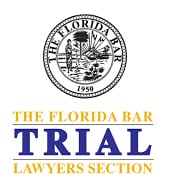If you’ve been injured in a car accident as a result of someone else’s negligence, you’re eligible to receive full financial compensation from the at-fault driver. But what if the insurance company has a capped policy limit that’s less than what you’re owed? How can you collect the compensation you deserve, even if it surpasses your insurance limits?
Unfortunately, after a motor vehicle accident, most claims define the settlement value by the insurance limits of the negligent driver’s policy rather than the severity of an accident victim’s injury. Few plaintiffs receive more than the threshold outlined in the insurance policy, but with the right auto accident attorneys by your side, it’s possible to increase your compensation.
We’ll discuss the legality of Florida policy limits as well as a few guidelines that may help you collect your full and deserved amount.
Understanding Florida’s Insurance Policy Limits
After purchasing any kind of liability insurance policy, there will certainly be a policy limit that indicates the maximum monetary amount the company will be responsible for should there be an accident. Florida’s minimum coverage for an auto accident is:
● $10,000 for personal injury protection
● $10,000 property damage liability
● $25,000 for bodily injury liability insurance (in Florida, drivers are not necessarily obliged to purchase this type of insurance)
If you’re facing medical costs, lost wages, and other damages, you’re likely to be awarded more than the outlined policy limit. However, the insurance company will not pay any more than it has to, even if a judge or jury awards you a greater amount. If the compensation exceeds the policy limit, the injured driver will have to obtain the remaining amount from somewhere or someone other than the insurer.
Pursuing Compensation Beyond Your Auto Insurance Policy
With the help of a qualified car accident attorney, there are a few alternate options that you can choose to pursue:
Suing Multiple Parties After an Injury Lawsuit
It’s not uncommon for multiple defendants to be held legally responsible for an accident. For example, if the negligent party was driving a city bus, commercial truck, or company car, you may have grounds to sue the greater corporation. Likewise, if there were multiple drivers in an accident, you may be able to file a claim against each. Suing more than one party may not necessarily acquire you the full amount you deserve, but it can certainly make a dent.
Collecting Personally from the At-Fault Driver After an Injury Lawsuit
You may be able to collect the excess amount not covered by the insurance company by directly suing the at-fault driver. Note that this strategy is not always successful, as the defendant may not have the income to pay for such damages. However, if they do have assets, it may be worth considering a trial. You can potentially garnish wages from the negligent party or put a lien on their property so that it can’t be sold until you’re paid the full amount. An experienced attorney will be able to establish whether or not suing the at-fault driver is worth the energy and expense.
Recovering Compensation Under an Umbrella Policy
If the defendant has an umbrella policy—insurance that will pay for damages that exceed the amount provided by the primary auto policy—you will receive your full injury settlement. In this case, the defendant would need multiple insurance policies already covering them. This is fairly uncommon and typically only applies to larger businesses, but some individuals have this type of insurance coverage. Your attorney will be able to do the necessary research to determine what insurance policies are available in your case.
Filing a Bad Faith Claim Against the Insurance Company After a Car Accident
If an insurance company refuses to settle an injury claim that falls within their policy limits, they can be held accountable for the full amount, even if it exceeds their parameters. Here are a few examples of instances when an insurance company may be acting in bad faith:
● Refusing to properly investigate a crash
● Not making on-time payments
● Failing to offer any justification for rejecting a claim
A lawyer will be able to help you determine that an insurance company is acting in bad faith, who was at fault for the accident, that your injuries were a result of the crash, and the actual value of your case.
Consult With an Expert Florida Car Accident Attorney
If you’ve been injured in a car accident and seek full financial return from the at-fault driver—even if compensation is above the insurance limit—contact Baker Legal Team. Robert B. Baker is a Board-Certified personal injury lawyer with more than 30 years of experience representing residents in South Florida who have been injured in a car accident. Robert will help you recover the damages you deserve. Give Baker Legal Team a call at (561) 320-0000 or complete a contact form today!











